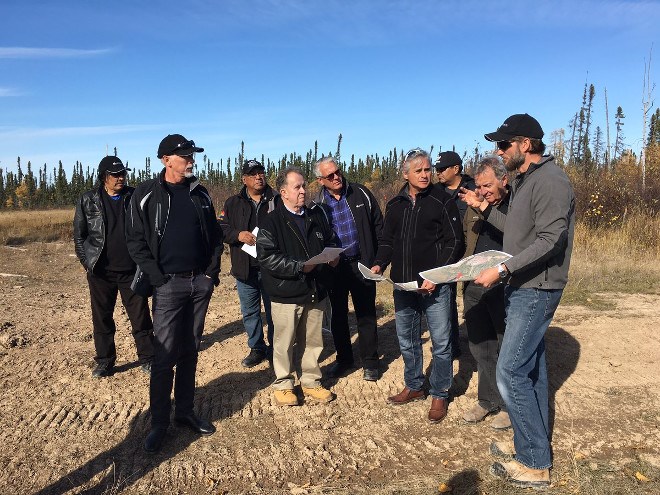The “politics of division” won’t advance progress on a contentious Ring of Fire road corridor, contends the chief of a remote First Nation community.
Neskantaga’s Wayne Moonias is offended by remarks made by Indigenous Relations and Reconciliation Minister David Zimmer in the Ontario legislature after a trip made last month to an exploration camp in the James Bay lowlands, hosted by Noront Resources and the chiefs of Webequie and Marten Falls.
In a Nov. 14 letter written to Northern Development and Mines Minister Michael Gravelle, and obtained by Northern Ontario Business, Moonias reminds the province that his community still has not consented to a provincial plan to begin construction on an east-west road into the Far North mineral belt by 2019.
“We are deeply troubled by the politics of division, a politics of side deals and misleading public announcements, that Ontario is recklessly pursuing,” Moonias wrote.
During the Oct. 23 Question Period in Queen’s Park, Zimmer spoke about his day trip to Noront’s fly-in Esker Camp and tour of the company’s exploration project, 530 kilometres northeast of Thunder Bay.
There, Zimmer said he met with the “Ring of Fire chiefs” and was involved in “extensive briefings, extensive consultations, to find out how to best deal with the transportation corridor issue.”
Zimmer was responding to criticism from Sault Ste. Marie MPP Ross Romano on the “Third World conditions” in these isolated communities and the government’s lack of movement on the road development.
“Describing the chiefs of Marten Falls and Webequie as the Ring of Fire chiefs sends the wrong signal to the public and investors,” Moonias wrote in his letter to Gravelle, who accompanied Zimmer on the trip along with Municipal Affairs Minister Bill Mauro.
“The public and investors could be misled into thinking that the support of only two of the nine Matawa communities would be required to ‘deal with the transportation corridor issue.’”
Moonias and Neskantaga remain upset over Premier Kathleen Wynne's announcement in Thunder Bay last August that preparatory engineering and environmental work was beginning toward the construction of two routes into the Ring of Fire in 2019, a shared east-west community/industrial road and the first leg of a north-south corridor.
The roads would link the communities of Marten Falls, Nibinamik and Webequie to the provincial highway network for the first time.
Neskantaga and Eabametoong remain on the sidelines, harbouring concerns over the environmental and social effects that mine-related development would have on their communities.
But the Wynne government is anxious to get activity going in the Ring of Fire as political and industrial pressure builds heading into the 2018 election.
Moonias said negotiating with individual communities and not all nine in the Matawa tribal council doesn’t follow the spirit of the province’s ongoing Regional Framework Agreement, started more than three years ago to devise the best approach to mine development in the Far North.
He said continuing on this path could lead to litigation and project delays, and cause lasting damage with area First Nations on treaty rights and “even conflict” between Matawa communities.
Moonias urged the government to return to the negotiating table.
“A politics of division that pits First Nations against each other is a return to colonialism and a rejection of reconciliation,” he wrote.
“The truth is that informed consent of all Matawa First Nations will be required before shovels are in the ground in the Ring of Fire.”




